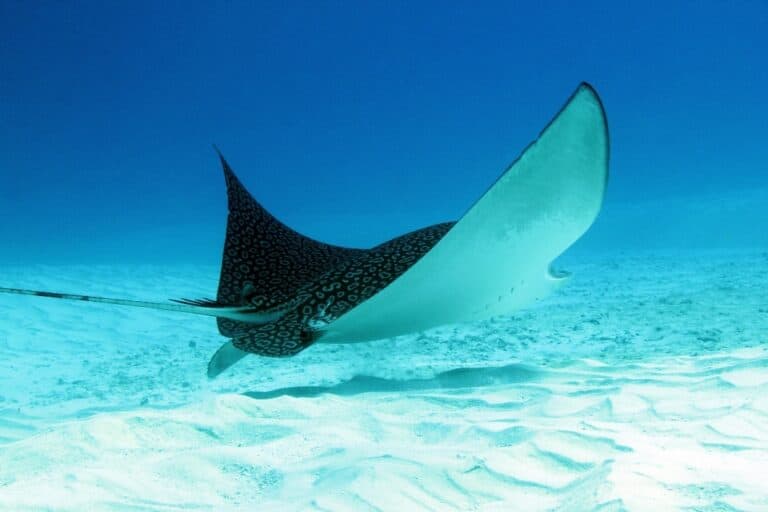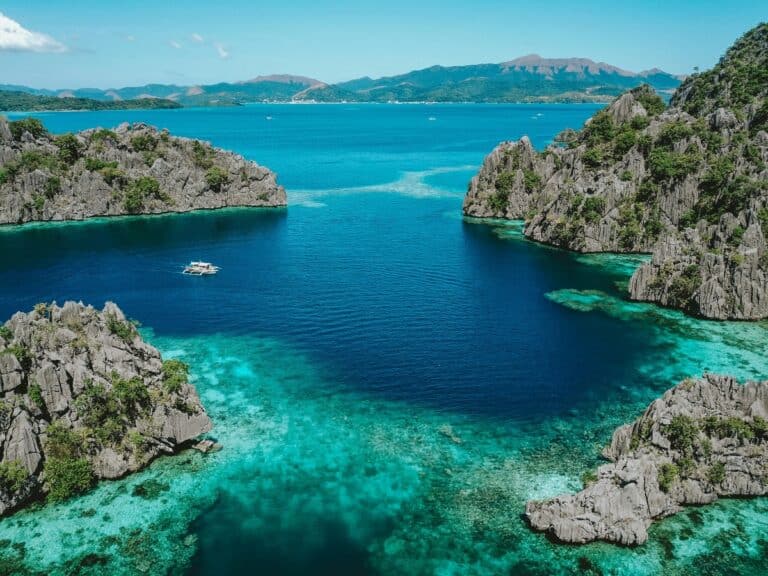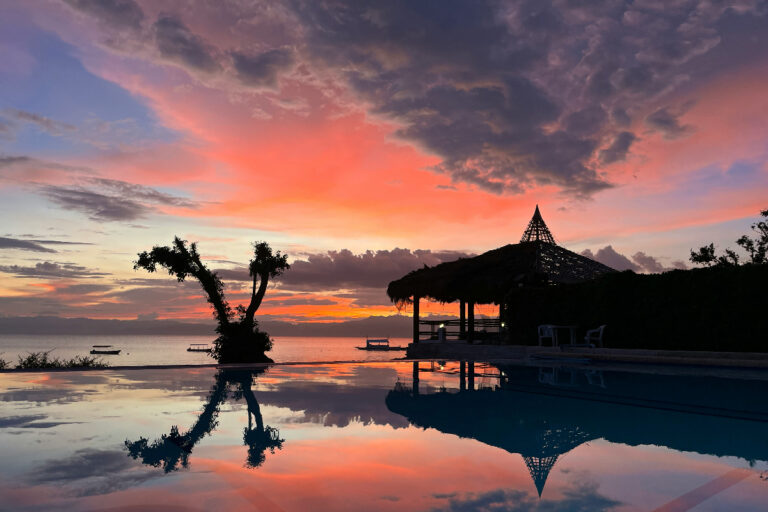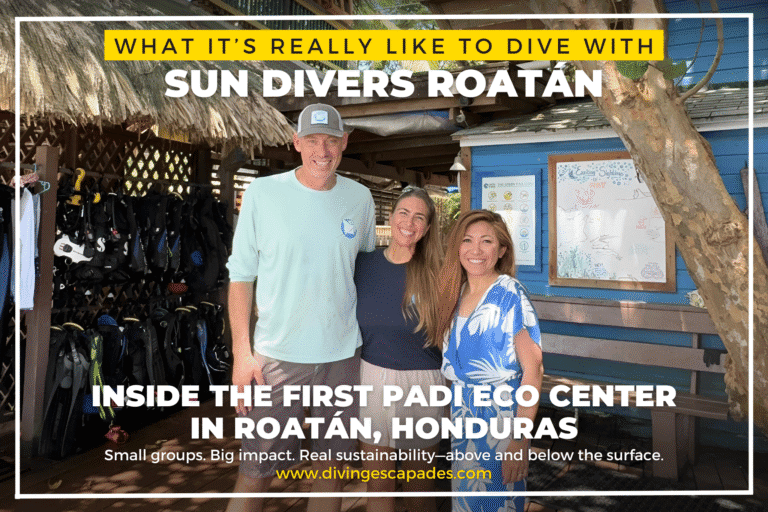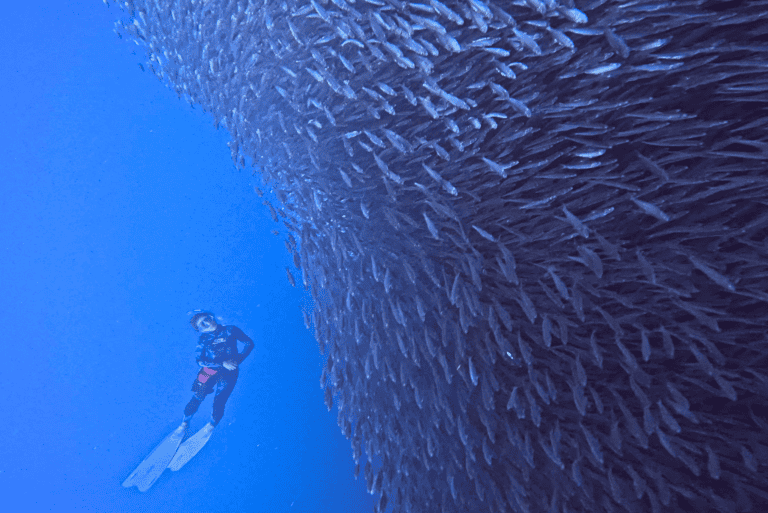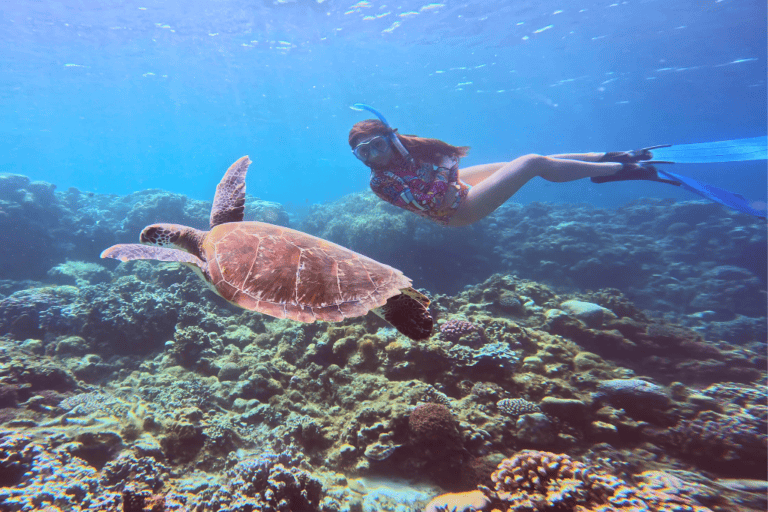Spotlight Interview: Insights from Fabiana Loureiro, SCUBA Diving Instructor from Luxembourg
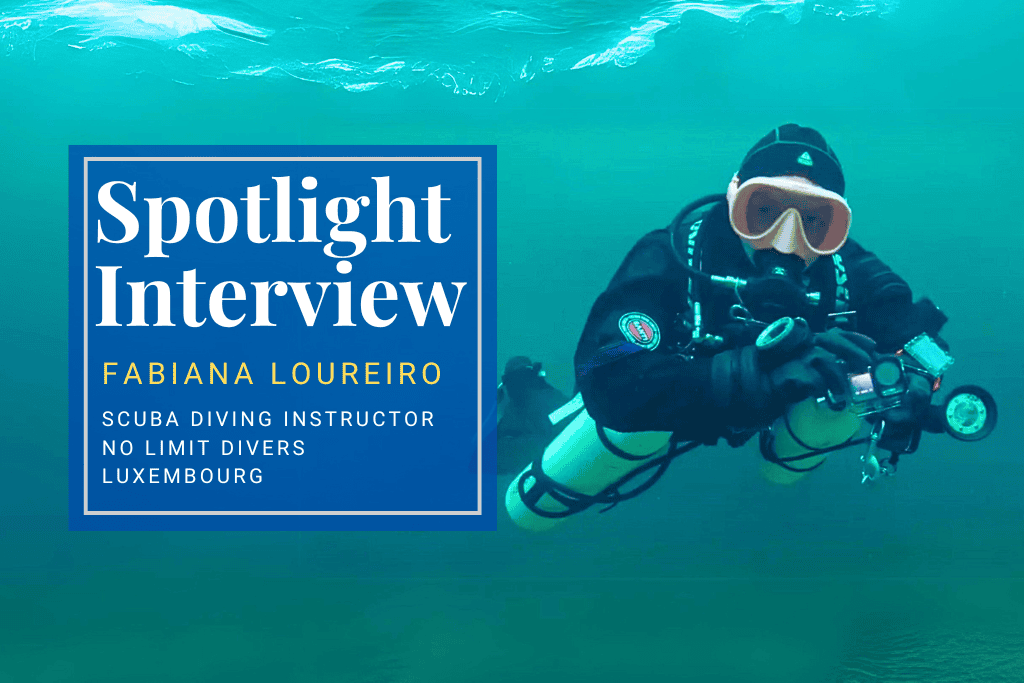
Welcome to the Spotlight Interview Session on Diving Escapades, where I explore the fascinating world beneath the waves through the eyes of those who know it best.
In this first interview session, I am thrilled to feature Fabiana Loureiro, a SCUBA diving instructor who not only teaches the art of diving but also ignites passion for underwater exploration among her students and club members in Luxembourg.
In this exclusive interview, Fabiana shares her unique journey from discovering SCUBA diving as a youth leader to co-founding the inclusive and thriving No Limit Divers club in Luxembourg. With a background in education and a deep love for scuba diving, Fabiana exemplifies how profession and passion can beautifully join together, offering insights that are as inspiring as they are instructive.
Join me as Fabiana recounts her first breath underwater, her progression to becoming a certified SCUBA instructor, and her commitment to making diving accessible to all. Through her story, I delve into the essentials of beginning SCUBA diving, the critical importance of safety in the sport, and the enthusiastic community that diving can create.
1. Can you tell me about your background and how you started SCUBA diving?
FL: Hello I’m Fabiana, a SCUBA diving instructor at No Limit Divers Club in Luxembourg. Additionally, I am a primary school teacher and I am currently teaching 5th and 6th grade students.
My first encounter with scuba diving was during a Discover Scuba Diving session when I was around 20 years old. I was a Youth Leader for the Red Cross at that time, guiding a group of young people under 18 on an excursion in the south of France, near Perpignan. Scuba diving was one of the activities offered, and after my first dive, I instantly fell in love with the sensation of breathing underwater, feeling both free and buoyant.
Initially, I believed scuba diving was only a vacation activity; I didn’t realize it could become a regular hobby or a serious pursuit. During this period, I met Michel Ribeiro, who later became a fellow instructor at No Limit Divers.
He introduced me to a local scuba club in Luxembourg where I began my diving certification journey with CMAS as a 1-star diver. This experience sparked what I like to call a “diving fever.” I became deeply involved in the club’s weekend excursions, and my passion for being underwater grew.
I even invested in my first piece of diving gear—a dry suit—shortly after my initial certification, essential for the cold lake dives in Luxembourg. This gear enabled me to enjoy diving year-round, even during the cold winter months.
2. What inspired you to become a SCUBA diving instructor?
FL: My passion for teaching and education seamlessly transitioned into the world of SCUBA diving. The journey to becoming an instructor felt almost instinctive. In 2016, I completed a series of CMAS diving trainings, advancing from a 1-star to a 4-star diver. Michel and I frequently organized weekend diving excursions for our club.
The need for certified instructors to continue these activities prompted both of us to further our qualifications. We pursued a cross-over training with PADI and officially became SCUBA instructors in 2018.
That same year, driven by a desire to foster an inclusive and supportive diving environment, Michel and I, along with other diving enthusiasts, founded No Limit Divers. Our not-for-profit club is based on a philosophy that “Everybody is welcome,” embracing divers and non-divers alike, regardless of their certification level or diving federation.
We emphasize that the most important aspect of our community is to create enjoyable experiences and lasting memories with our dive buddies, friends, and supportive family members. Starting with just 15 members, we have grown to nearly 80, illustrating the appeal and success of our welcoming approach.
Additionally, my love for teaching led me to develop a SCUBA Diving program for my students, starting with Discover Scuba Diving program and culminating in the opportunity for them to earn their open water certifications. This program included theory sessions, pool trainings, and excursions to Monte Mare in Rheinbach, Germany.
While we have currently paused this school-based program due to logistical challenges, we continue to introduce scuba diving to young community members through other initiatives, like our recent activities in Jugendhaus, Niederanven located in the north-east of Luxembourg city.
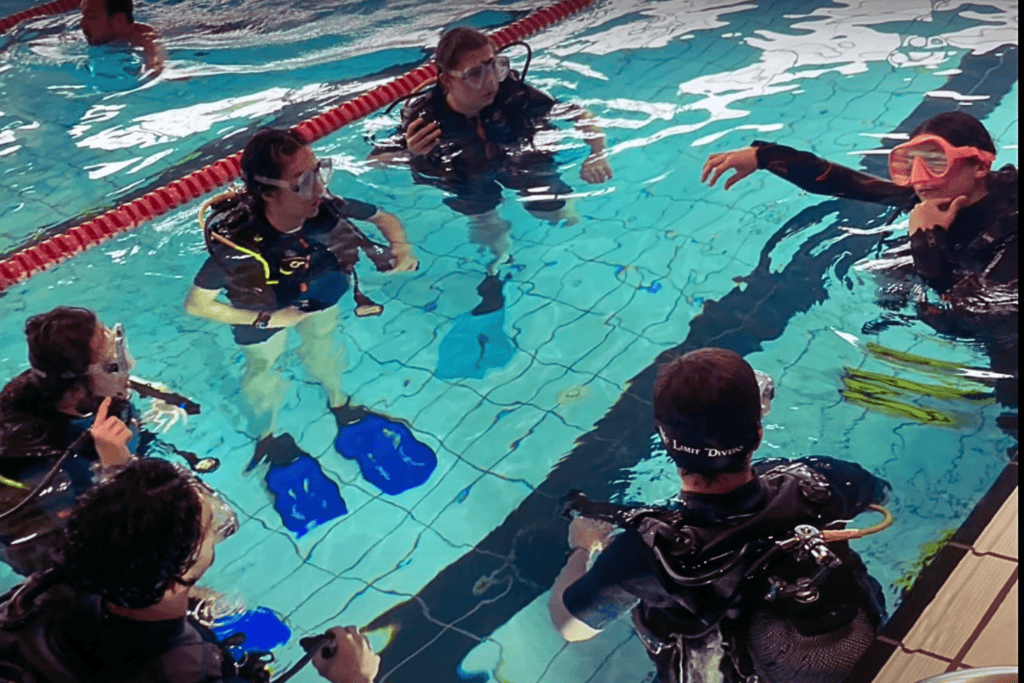
Fabiana teaching diving lessons in Jugendhaus, Niederanven (Luxembourg). Photo Credit: No Limit Divers, ASBL.
3. For someone interested in starting scuba diving, what are the first steps they should take?
FL: The best starting point is to try a “Discover SCUBA Diving” session. This experience is designed to give you a taste of what scuba diving feels like, helping you decide if it’s something you love or not. It’s a practical way to get your feet wet before committing to more extensive training. If you find that diving captivates you, the next step would be enrolling in an Open Water Certification course where you’ll learn the fundamentals of scuba diving, including safety procedures, equipment handling, and basic underwater skills.

During a scuba diving training session in Coque National Sports and Culture Centre, Kirchberg, Luxembourg.
4. What kind of physical and health considerations should new divers be aware of?
FL: Scuba diving is an activity that demands good physical health. Not everyone can dive safely, especially if they have issues related to the ears, sinuses, heart, or lungs. Prospective divers must undergo a medical examination to ensure they are fit to handle the physical demands of underwater diving. Being medically fit not only ensures your safety but also enhances your overall diving experience.
5. What are the most important safety rules that every diver should follow?
FL: Knowing and respecting your personal limits is paramount. I learned this the hard way through my own experience with narcosis symptoms during a deep dive at 50 meters. This incident was a stark reminder of the dangers that come with exceeding your comfort zone. Staying within your certified limits, adhering to dive plans, and diving with a buddy are crucial rules that every diver should follow to maintain safety underwater.
6. What do you think about solo diving?
FL: Although I am trained as a self-reliant diver, solo diving is something that requires extensive experience and specialized training. It teaches you to depend on yourself and ensure that all your equipment is redundant, meaning you carry everything in doubles. Proper training helps you prepare for any potential underwater emergencies. However, for beginners and even experienced divers, diving with a buddy is generally safer and recommended.
7. Do you need to be a SCUBA instructor to get certified as a self-reliant diver?
FL: No, you do not need to be an instructor to pursue a self-reliant diver certification. It’s a specialty course available to divers who want to enhance their skills in self-sufficiency. That said, for those new to diving, I always recommend starting with the foundational courses and diving with a buddy to build up experience and confidence underwater.
8. For divers looking to explore different types of environments, what nearby locations would you recommend?
FL: Luxembourg might be landlocked, but it offers some intriguing dive sites. Esch-sur-Sûre, often referred to as the “Stausee,” is a prime location where divers can explore sunken bridges and ruins. The visibility is generally good in May. Another spot is Remerschen.
For those willing to travel a bit further, the region extends to neighboring countries like Germany and Belgium. It requires about a 2-hour drive to reach these dive sites. A personal favorite of mine is Carrière de Rochefontaine in Belgium, an old red marble quarry with varied depth plateaus and an abundance of aquatic life such as carp, perch, and crayfish.
Additionally, there are indoor pools available near Luxembourg. Todi, located in Beringen, Belgium, is situated inside a former coal mine; Dive4Life, located in Siegburg, Germany; and Monte Mare, located in Rheinbach, Germany. No Limit Divers organizes excursions to these places from time to time.
9. Are there any special programs or initiatives you’re involved in to promote scuba diving among the youth in Luxembourg?
FL: Yes, engaging youth in scuba diving is a passion of mine. We recently conducted a Scuba Diving Theory session at Jugendhaus, Niederanven and complemented it with pool training exercises. These sessions are designed to spark interest in scuba diving, providing a foundational understanding and skills in a controlled environment.
10. Do you do any clean-up dives?
FL: Yes. We organize at least one cleanup dive annually in lakes such as Upper Sûre Lake in Luxembourg and Stausee Losheim in Germany. These efforts help maintain the underwater environment, ensuring that it remains pristine for both the aquatic life and future divers.
11. What has scuba diving taught you about yourself and the world around you?
FL: Scuba diving has reinforced my adventurous spirit and self-trust. Although I sometimes face doubts and challenges, scuba diving boosts my confidence and resilience. It’s also a socially enriching activity that brings people together. Despite our differences, diving creates a bond over a shared passion, leading to lasting friendships and a strong sense of community.
As we wrap up our conversation with Fabiana Loureiro, it’s clear that her journey and insights go far beyond teaching SCUBA diving; they inspire a deeper connection with our underwater world and emphasize the importance of community and environmental stewardship. Fabiana’s story is a powerful reminder of how diving not only explores the physical depths of the oceans but also touches the depths of our own capabilities and dreams.
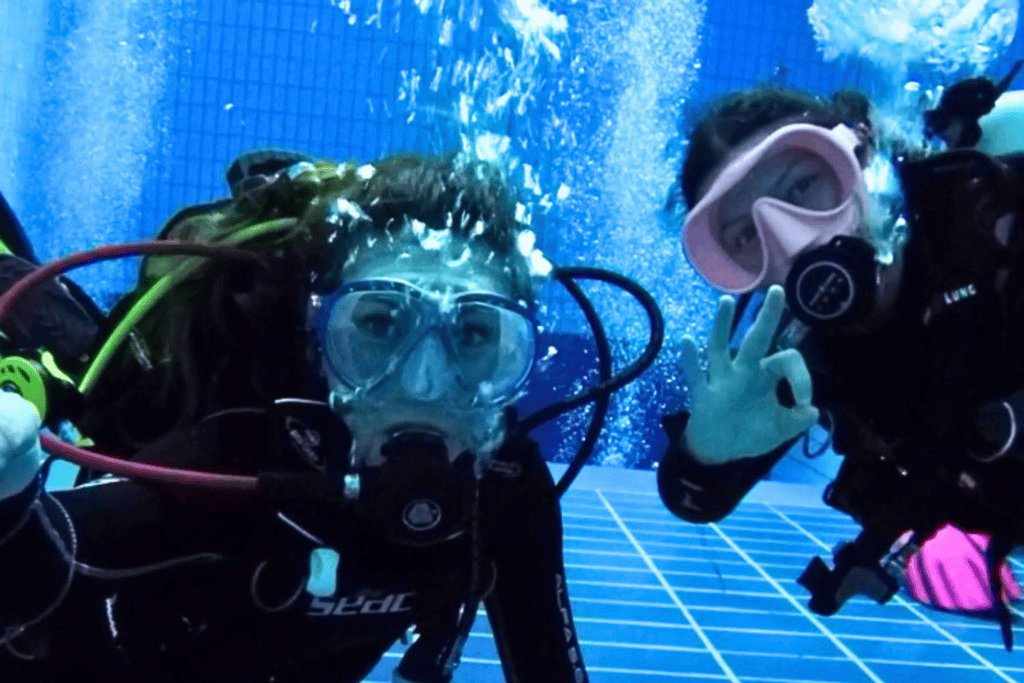
Diving with Fabiana in Coque National Sports and Culture Centre, Kirchberg, Luxembourg..
Conclusion
I have loved diving into Fabiana Loureiro’s world in this interview, uncovering the passion and dedication that drive her as both a diver and a teacher. From her first dive to leading No Limit Divers, Fabiana shows us how diving can truly change lives, opening up a world of adventure beneath the waves.
If her story has sparked your curiosity to explore the underwater world, or if you’re just looking to learn more, why not reach out? You can dive right into this amazing community by visiting No Limit Divers at [https://www.nolimitdivers.lu].
To see what the No Limit Divers community’s fun training sessions look like behind the scenes, check out Diving Escapades on Instagram. Whether you’re starting your diving journey or looking to deepen your existing passion, Fabiana and her team are ready to welcome you. Dive in and start your own underwater adventure!

